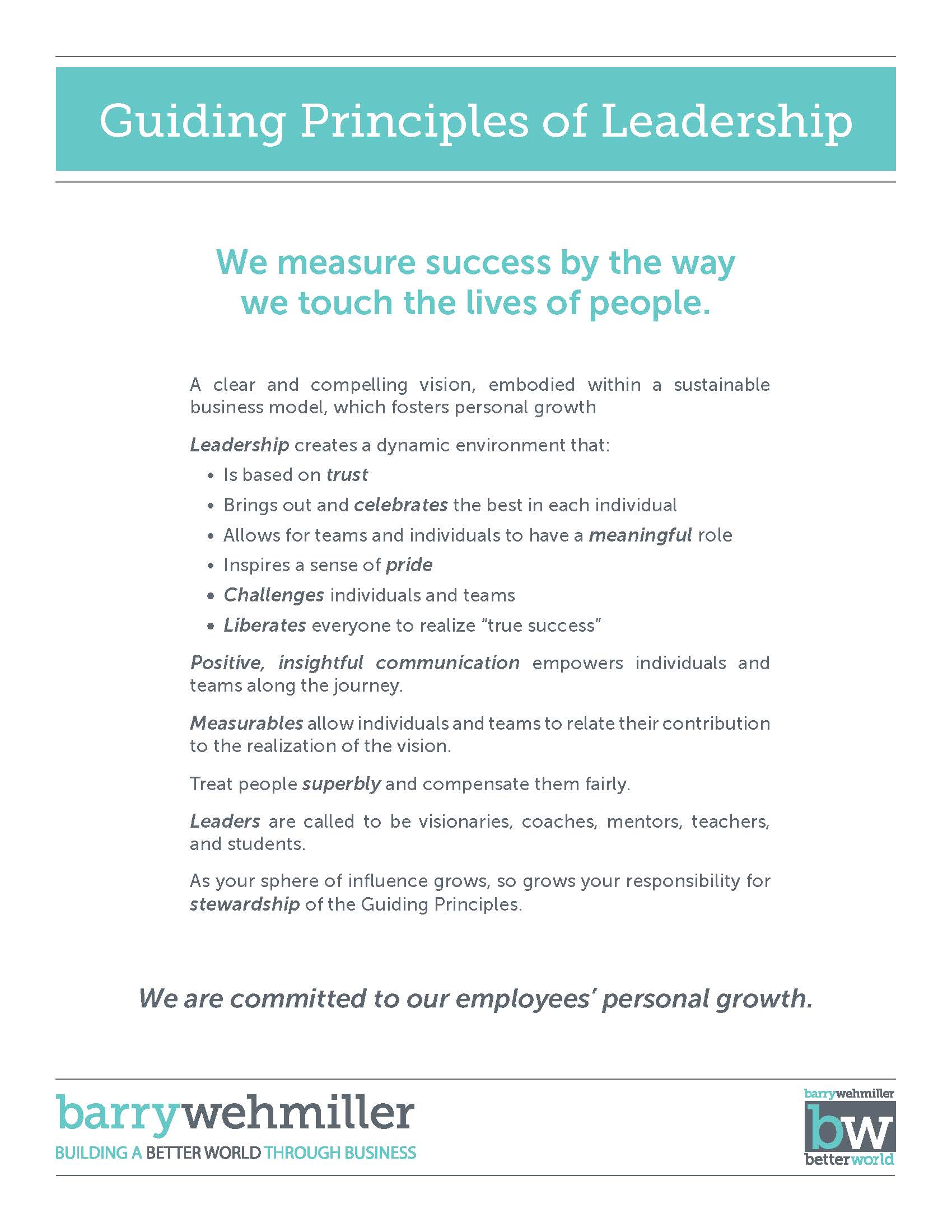Profile: Bob Chapman, CEO and champion of Whole Human Leadership
Inc's #3 CEO in the world, Bob Chapman is tackling disengagement at work by teaching managers to care. Bob shares how this caring approach fused with a sound business strategy has delivered stunning business results for his firm.
Sixty-nine percent of people in the US and Canada are disengaged at work (in Europe, it’s eighty-seven percent)*. This is a statistic that many know, but one I still find extraordinary.
Bob Chapman, CEO of $2bn-per-year industrial group Barry-Wehmiller, is on a mission to turn this around.
In 1967 Bob’s father died and Bob left his career at PriceWaterhouseCoopers to step in and join the then-broken, family business, Barry-Wehmiller.
He proceeded with an “MBA-style” approach to r estructuring and growing the manufacturing and engineering operation: laying people off, rightsizing, downsizing, cutting costs, and a strictly numbers-oriented, materialistic approach to business.
In the midst of this came a turning point. A young man asked Bob something over dinner that took him off guard. He wanted to know Bob’s greatest fear.
Bob’s answer: “That I was blessed with a leadership vision that could change the world through the power of business, and it would die with me.”
In my interview with Bob, he described this vision as one where we live and work together and genuinely care for each other.
The following day after that dinner, Bob realised that if his vision wasn’t going to die with him, he needed disciples. As with religions, he would need devotees who would carry his philosophy of caring beyond his time.
Values as leadership principles
Fuelled by his Christian faith, Bob began to apply a more caring approach to his leadership. However, over time, he realised that to create the change he desired to achieve across Barry-Wehmiller, he would need to be more intentional about its culture. He started by leading a process to define the company’s values. The process culminated in defining Barry-Wehmiller’s Guiding Principles of Leadership:

Figure 1: Barry-Wehmiller’s Guiding Principles of Leadership, image from Bob’s book ‘Everybody Cares’.
Leading as caring
What’s notable about these values is that they’re articulated as guiding principles of leadership. They recognise that it is only through individuals’ acts of leadership that they reinforce and protect these values. They emphasise that outstanding leadership is at the heart of a great culture.
However, Bob soon discovered an issue in implementing these values. He found that simply declaring and policing them was insufficient to change the culture.
Bob found that he needed to teach people to be caring leaders.
As I reflected on this point about caring, I realised that this made sense. When in your life have you been taught to care? Who ever received caring lessons at school or university?
My partner is a dentist. She told me she had “maybe three hours” in communication training in six years of medical education and nothing specifically on the art of caring. Even in the ‘caring professions’, educators do not teach caring as a practice.
Teaching people to care is a core aspect of Barry-Wehmiller’s Leadership Fundamentals programme. This programme is not, however, “designed to impart skills. It is designed to be a transformative experience that inspires people to truly embrace the awesome responsibility of leadership.”
We couldn’t agree more with this approach. For sustainable, significant impact, businesses must employ coaching that transforms individuals’ relationships with themselves and others. Leadership development can not expect superlative results if limited to knowledge transfer and skills development. Only when coaches invite people to see the tremendous human potential awaiting expression within themselves can they step forth into inspiring leadership.
Outperforming Buffett
To illustrate what this level of investment in leadership can achieve, Barry-Wehmiller use a metric to value their privately held stock that emulates the market. According to Bob, this benchmark has gone up fifteen percent a year compounded for twenty-five years. To put this in perspective, Warren Buffett’s Berkshire Hathaway in that same time has increased its value by around 10 percent a year.
But interestingly, Bob does not cite his caring leadership approach as the principal source of this success. In 2016, Harvard Business School wrote a case study on Barry-Wehmiller’s culture. Havard’s Professor Rifkin invited Bob to a class where he introduced the Barry-Wehmiller case to 160 global executives. At the end of a discussion on the case, Rifkin polled the students. He asked whether Barry-Wehmiller was more successful because of its culture or its strategy. Seventy-five percent of the class voted that it was Barry-Wehmiller’s culture that was at the heart of its success; twenty-five percent of students opted for its strategy.
Bob was with the minority, that the foundation of Barry-Wehmiller’s success was its business strategy. As Bob sees it, the culture allows his firm to potently fulfil its strategy. Bob likens his organisation to a race car. If Ferrari designs the perfect high-performance engine, you need to put a high-octane premium fuel into that engine for it to perform to its potential.
Barry-Wehmiller’s caring leadership culture is its high-octane fuel.
Bob’s ultimate message. Yes, you need a sound business strategy, which alone might mean succeeding. However, to reach Buffet-beating heights of performance that has each employee feeling truly cared for, you’ll need to develop outstanding leadership across your organisation.
Inspired by this article?
Would you like to create similar levels of outstanding leadership in your company?
Then we’d love to see if you we could help you with that.
You can book a call with us here.
